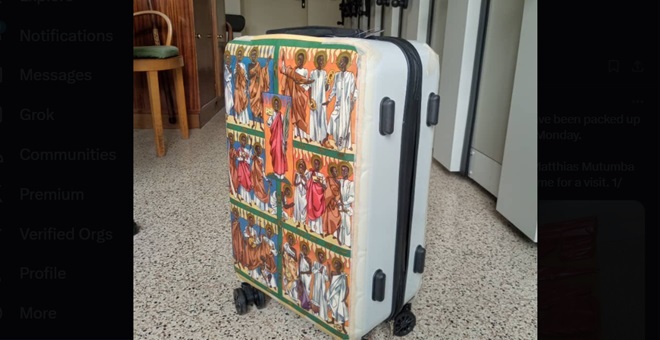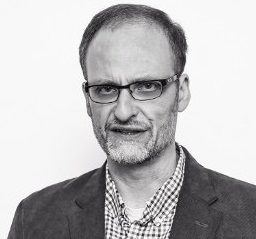
The Uganda Martyrs are the first black saints of modern times, and the first people south of the Saraha desert to be canonized
COMMENT | PROF DEREK R PETERSON | This is a hugely important moment in Uganda’s church history. The relics of the Uganda Martyrs that are being returned to Uganda this week have a fascinating history. They are the bones of Karoli Lwanga and Matthias Mulumba, which were gathered up by earnest Christians from the places where the two saints were killed in 1885 and 86. The White Fathers put them into a metal box and buried them in the ground for safe-keeping; when their church was destroyed during the religious wars, the box was lost. Finally—once they were re-discovered—they were shipped off to Tanganyika for safe-keeping, then brought back to Uganda in 1899.
In 1942 these relics were used in the miraculous healing of two Catholic sisters. It was this miracle that helped establish the case for the Martyrs’ canonization. They’ve lain in the Vatican since that time. Today, more than 60 years later, we are bringing them back.
I’m the co-curator of the exhibition, working with the lead curator, my colleague Dr. David Ngendo Tshimba of Uganda Martyrs University. I have written most of the interpretive text around the exhibition, and have helped to figure out how to lay everything out.
The costs of the exhibition have been considerable.
We had originally intended to do this on a grand scale, and we’d hoped to secure funding from government to make this happen. When the promised funding did not materialize, we’ve had to put this together on a much more modest scale.
The finance comes from funds that I have at the University of Michigan; it also comes from Uganda Martyrs University, the Archdiocese of Kampala, and from private individuals who have generously opened their pockets to support it. We have not received any government funding to support this show. Attendees should be aware of this. This is a hugely important moment in Uganda’s church history, but the resources we’ve had to work with have been very limited. The exhibition reflects this fact.
Earlier this year colleagues at the Uganda Museum and myself welcomed 39 historical artefacts from the University of Cambridge, most of them taken from Uganda in ethically questionable circumstances in the early 20th century. We are presently working to research the histories of these objects, with the goal of laying on an exhibition to feature them in 2025 or 2026.
Developing Story: Receiving of the First class Relics of the Uganda Martyrs from Rome At entebbe Airport. There will be An exhibition to take place at Uganda Martyrs University from 14th September to 31st October.
More details coming Up shortly pic.twitter.com/xOetToy4W2— Ugandan Catholics Online (@ugcatholics) September 9, 2024
The relics of the Uganda Martyrs have a different story than the relics we brought back earlier this year. (CLICK TO READ STORY)
The Martyrs’ remains were not stolen from Uganda: they were sent to the Vatican as proof of the Martyrs’ miraculous powers. There they have lived as a physical part of the ‘community of saints’. It is an honor, surely. They are the first black saints of modern times, and the first people south of the Saraha desert to be canonized. Their canonization in 1964 was a landmark in the life of the Catholic church: it represented a sea change in the way that Catholics regarded African cultures, languages, and peoples. But their presence in the Vatican is also a loss for Uganda and for the Ugandans who are devoted to them. That’s why we are bringing them back: we want to put them back into the political and social world where they lived, to help us see how to live faithfully in our own age of trauma, division, and violence. In my view, their return is a chance for us all to remember what it means to make one’s own choice about whom, and to what, one is to be loyal.
It is important to note that I am not a Catholic. I am very much a Protestant. But I also regard the return of Karoli Lwanga, Matthias Mulumba and their companions with great excitement. They are sons of the soil. They are among the founders of contemporary Uganda. Their lives and their deaths were sanctified; but they were also political actors. They were martyred because they would not accept the arbitrary and self-serving demands of their king. They died defending their liberty, their eddembe, their freedom of choice. I see them as democrats. It is for that reason that I hope Ugandans will come in numbers to venerate their memory, to learn about their lives and their times. Regardless of who you are, regardless of what god you honor, we all need saints in our lives. They help us map out the path between our present world and the world that is to come
*****
 DEREK PETERSON is a Professor of African Studies at the University of Michigan
DEREK PETERSON is a Professor of African Studies at the University of Michigan
ON TWITTER @Unseen_Archive
 The Independent Uganda: You get the Truth we Pay the Price
The Independent Uganda: You get the Truth we Pay the Price





